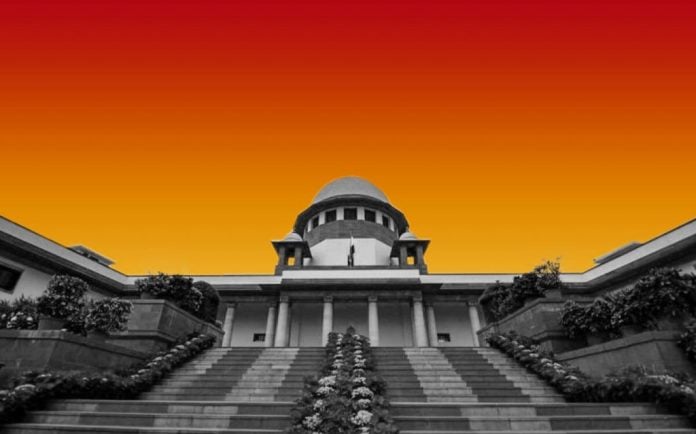The Supreme Court rejected a petition on Tuesday, which alleged that the Lulu Mall in Thiruvananthapuram in Kerala was built in violation of Environmental Impact Assessment (EIA) notification or the Coastal Regulation Zone (CRZ) regulations.
A bench comprising Chief Justice N.V. Ramana, Justice J.K. Maheshwari and Justice Hima Kohli dismissed the plea filed by one M.K. Salim, challenging the environment clearance granted to Lulu Mall by the Kerala High Court.
The bench, while disposing of the plea, observed that this type of business should not be entertained by the Supreme Court. Keeping in view the Kerala High Court verdict of August 13, 2021, the top court of the country noted that the Hugh Court had appointed a committee, which did not find any violation by mall owners.
Salim had alleged in his petition that the construction of Lulu Mall fell within the prohibited distance from two water bodies – the Aakulam lake and the Parvathy Puthanar canal, thus destroying the ecological balance of the area.
It alleged that the State Environmental Impact Assessment Authority (SEIAA) had erroneously granted EC to the Rs 1,000 crore project.
As per the plea, the SEIAA gave EC on October 4, 2016, stating that Lulu Mall was built at a distance of 100 meters from the Hide Tide Line of Aakkulam Lake, which was covered by mud and stone debris to show that the building did not violate the Coastal Regulation. In reality, the building was constructed adjacent to Aakkulam lake, destroying the scenic beauty of the coastal area.
The petition also contended that SEIAA had power to grant EC only for constructions up to 1,50,000 square meters, however, the mall building, constructed at 2,32,400 sq mt, was given clearance in category B as per EIA Notification 2006. This was a huge violation of the power vested on the authority, it alleged.
Salim said that Lulu Mall owners, in their counter affidavit, had submitted that the project was a Township and Area Development Project, which was false.
He said the Chief Town planner in Kerala had given a letter in Thiruvananthapuram from his office via RTI Letter, explaining that the area did not fall under the ambit of Township and Area Development.
As per Salim, the place where the mall was constructed, was a saline prone marshy land influenced by sea water, which was highly polluted and not fit for drinking.
He said earlier, the site was dense, had a large variety of tree species and belonged to the forest department. While the construction started, the process of deforestation was carried out and the environment was affected.
Case title: MK Salim vs State of Kerala


